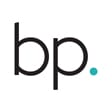Bank Loan
Definition
A bank loan is a financial arrangement in which a bank or financial institution extends a sum of money to a business, under the agreement of repayment plus interest. This funding can be in various forms, from standard commercial loans to those backed by the U.S. Small Business Administration (SBA), such as 7(a) loans and 504 loans.
Bank loans provide the necessary capital for business operations, expansion, and sustainability.
Key Features
- SBA Loans: Specifically designed to aid small businesses, SBA loans are known for potentially lower down payments, flexible overhead requirements, and in some cases, no collateral requirement. They cater to businesses that may struggle to secure standard bank loans.
- Commercial Loans: These are traditional bank loans that don’t carry SBA guarantees and are based on the bank’s own lending criteria, often requiring larger down payments and collateral.
Significance for Entrepreneurs
- Access to Capital: Both SBA and commercial bank loans offer crucial financial support for starting, maintaining, or growing a business.
- Credit Building: Consistent repayment of these loans is instrumental in establishing and improving a business’s creditworthiness, which is key for future financial endeavors.
Considerations for Startups
- Loan Terms: Startups should pay attention to the repayment schedule, interest rates, and any covenants or conditions associated with the loan.
- Government Guarantee: SBA loans often come with government guarantees, potentially providing easier access to funding and more favorable terms for borrowers.
Frequently Asked Questions
- How can startups determine the right type of bank loan for their business?
Startups should consider their specific financial needs, repayment capability, and long-term business goals. Evaluating the benefits and requirements of both SBA and commercial loans is crucial. Factors like the size of the loan, collateral availability, and the cost of borrowing (interest rates and fees) should guide their decision. Consulting with financial advisors or bank loan officers can provide additional clarity.
- What are the common challenges startups face when applying for bank loans, and how can they overcome them?
Common challenges include meeting stringent credit requirements, providing adequate collateral, and demonstrating a solid business plan. To overcome these, startups should focus on building a strong credit history, preparing thorough and realistic business plans, and exploring various loan options to find the best fit. In some cases, SBA loans might offer a more accessible pathway due to their government backing and potentially more favorable terms.
- How important is understanding the interest rates and fees associated with bank loans in business planning?
Understanding interest rates and fees is critical in business planning as it affects the total cost of borrowing. Startups need to account for these costs in their financial projections and cash flow management. It’s important to compare different loan offers and understand how interest rates might fluctuate over time, especially with variable-rate loans. This understanding helps ensure that the chosen loan aligns with the business’s financial strategy and sustainability.
Related Terms
Also see: 7(a) Loan, 504 Loan, Interest Rate, Debt Financing

